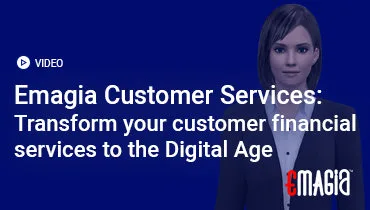In today’s fast-paced financial landscape, organizations require robust tools to manage their collections efficiently. Collections software modules play a pivotal role in streamlining debt recovery processes, ensuring compliance, and enhancing customer relationships. This comprehensive guide delves into the intricacies of collections software modules, exploring their features, benefits, and the transformative impact they have on businesses.
Understanding Collections Software Modules
Collections software modules are specialized components within a broader financial software system designed to manage and automate the debt collection process. These modules facilitate the tracking of outstanding debts, automate communication with debtors, and provide analytical tools to assess collection strategies.
Key Features
- Automated Communication: Automates emails, SMS, and calls to debtors, ensuring timely reminders and follow-ups.
- Workflow Management: Streamlines the collection process through predefined workflows, reducing manual intervention.
- Integration Capabilities: Seamlessly integrates with existing ERP and CRM systems for unified data management.
- Analytics and Reporting: Provides insights into collection performance, debtor behavior, and strategy effectiveness.
Core Components of Collections Software Modules
1. Debtor Management
Centralizes debtor information, including contact details, payment history, and communication logs. This module ensures that all interactions are documented, facilitating personalized communication strategies.
2. Automated Communication Engine
Utilizes predefined templates and schedules to send reminders, notifications, and acknowledgments to debtors. This automation reduces the workload on collection agents and ensures consistent communication.
3. Payment Processing Integration
Integrates with payment gateways to allow debtors to make payments directly through the communication channels. This feature enhances the convenience for debtors and accelerates the payment process.
4. Dispute Management
Provides a structured approach to handle disputes raised by debtors, ensuring timely resolution and maintaining customer satisfaction.
5. Compliance Management
Ensures that all collection activities adhere to regulatory standards and internal policies, reducing the risk of legal complications.
Benefits of Implementing Collections Software Modules
Enhanced Efficiency
Automation of routine tasks allows collection agents to focus on complex cases, improving overall productivity.
Improved Cash Flow
Timely reminders and easy payment options encourage prompt payments, enhancing the organization’s cash flow.
Data-Driven Strategies
Analytics provide insights into debtor behavior, enabling the development of effective collection strategies.
Regulatory Compliance
Built-in compliance checks ensure adherence to legal standards, minimizing the risk of penalties.
How Emagia Transforms Collections Management
Emagia offers an AI-powered collections management solution that revolutionizes the way organizations handle debt recovery.
AI-Driven Insights
Emagia’s platform leverages artificial intelligence to analyze debtor behavior and predict payment patterns, enabling proactive collection strategies.
Seamless ERP Integration
The software integrates effortlessly with major ERP systems like SAP, Oracle, and Microsoft Dynamics, ensuring real-time data synchronization and unified financial management.
Digital Assistants
Emagia introduces ‘Gia’, an AI-powered digital assistant that automates customer interactions, handles inquiries, and facilitates self-service payment options, enhancing customer experience and reducing collection cycles.
Multi-Channel Communication
The platform supports communication through various channels, including email, SMS, and calls, ensuring that debtors are reached through their preferred mediums.
Frequently Asked Questions (FAQs)
What are collections software modules?
Collections software modules are specialized tools within financial software systems designed to manage and automate the debt collection process, including communication with debtors, payment tracking, and compliance management.
How do collections software modules improve efficiency?
By automating routine tasks such as sending reminders and processing payments, these modules reduce manual workload, allowing collection agents to focus on more complex cases, thereby improving overall efficiency.
Can collections software modules integrate with existing systems?
Yes, most collections software modules are designed to integrate seamlessly with existing ERP and CRM systems, ensuring unified data management and streamlined operations.
How does Emagia’s AI-powered solution enhance collections management?
Emagia’s solution utilizes artificial intelligence to analyze debtor behavior, predict payment patterns, and automate customer interactions, leading to more effective collection strategies and improved customer satisfaction.
Is compliance management included in collections software modules?
Yes, compliance management is a critical component, ensuring that all collection activities adhere to legal standards and internal policies, thereby reducing the risk of legal issues.
In conclusion, collections software modules are indispensable tools for modern organizations aiming to optimize their debt recovery processes. By automating tasks, providing analytical insights, and ensuring compliance, these modules not only enhance efficiency but also contribute significantly to improved cash flow and customer satisfaction. Emagia’s AI-powered solution stands out by offering advanced features that transform traditional collections management into a proactive, data-driven process.



